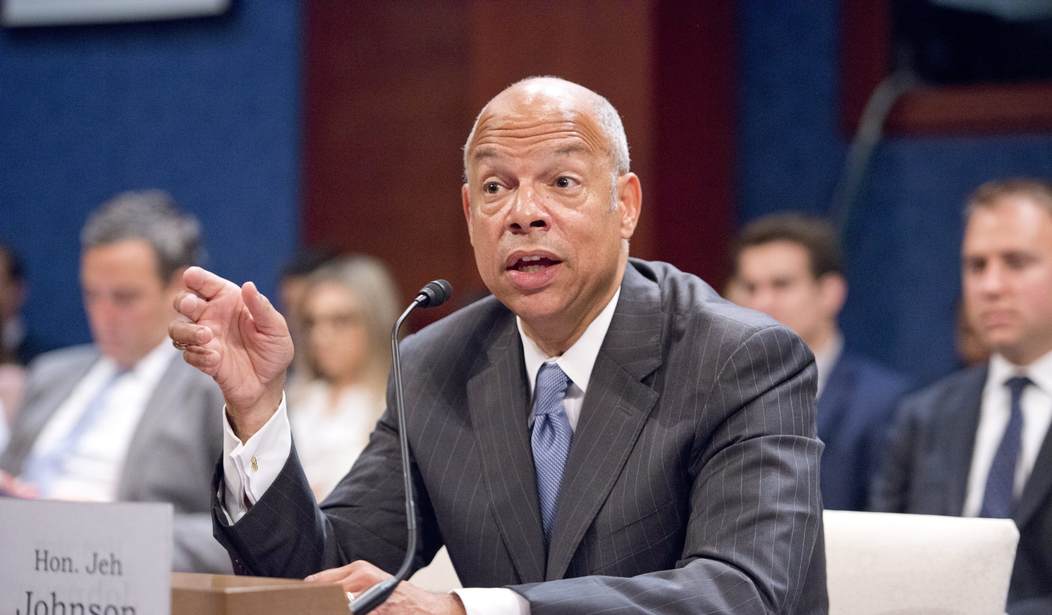WASHINGTON – Former Homeland Security Secretary Jeh Johnson said he remains “very worried” about the ability of “bad cyber actors” to compromise voter registration data.
“Last year, when we saw these voter registration databases being targeted, I was very worried that it was the ru- up to a huge catastrophic attack where people would show up at the voting booth and they would be told, ‘I’m sorry, you are not registered to vote.’ So we’re very worried about that and I continue to be very worried about the ability of bad cyber actors to compromise voter registration data,” he said during the Election Security Task Force Forum on Wednesday.
In January, before President Trump’s inauguration, Johnson designated the nation’s election systems as “critical infrastructure.” At the time, he said many state and local officials were “opposed” to his decision to make the designation.
During the forum, Johnson suggested Congress enact national minimum standards that states must follow to secure voter data. He said that the process of getting states on board with meeting certain requirements is going to be difficult because it’s a “sensitive area.”
“It’s very difficult. States regard this process as theirs, their sovereign jurisdiction. I think that some type of standards or inducements through grants or the like should be encouraged one way or another,” he said.
“Congress mandates federal standards in a whole bunch of contexts, and ensuring the integrity of our democracy is pretty important. So it’s something that we ought to look at. Exactly what is mandated I would want to carefully consider, but I also know that this is a very sensitive area with the states, too, so I’d urge caution in how you go about this,” he added.
Johnson was asked if the critical infrastructure designation had “changed” the Homeland Security Department’s relationship with the states. Johnson said there was a “fair amount of pushback” from states in the “run-up” to officially announcing the designation.
“I’m quite sure that a number of state officials were not happy that we went forward with it, based frankly on a misperception about what it would mean. I was convinced on Jan. 6 when I made the designation that it was the right thing to do, that it should have been done a long time before, because election infrastructure is as important as a lot of other critical infrastructure sectors,” he said.
Johnson said that understanding the meaning of the designation is “not that complicated.”
“It’s not real rocket science. So, you’re a priority customer if you seek our assistance and you get the benefit of the international cybersecurity norm, and you get the benefit of confidential communications should we have those communications,” he said. “It’s not mandating binding operational directives or federal regulation or anything of that type, but there was this misperception which we repeatedly wanted to dispel and I think we did for the most part.”
“But that’s probably still a work in progress at DHS. You would have to ask people who are there now.”









Join the conversation as a VIP Member